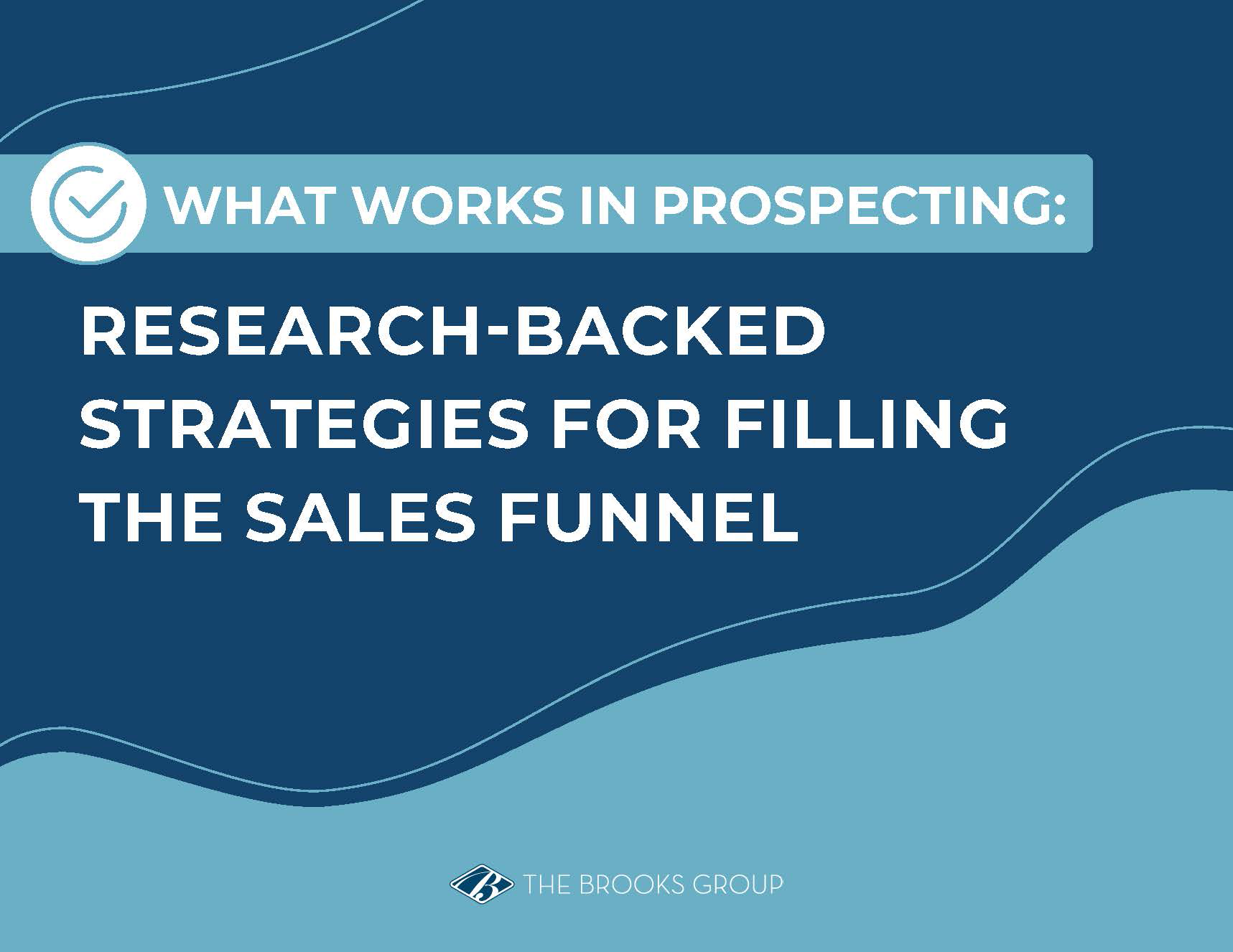Most sales professionals today are spending more time prospecting than ever before—and it’s getting harder.
- 40% of sales professionals say that prospecting is the most challenging part of the sales process.
- More than half of sales professionals think it’s more difficult to get in front of prospects than it was five years ago.
This means your sales team needs to be more efficient than ever when qualifying prospects.
Talking to anyone other than a highly qualified lead is wasted effort.
Understanding the characteristics of a legitimate sales opportunity will help your sellers hyper-focus on qualified prospects and keep them from spending time on leads that won’t progress to close.
As a sales leader, your role is to make sure sales professionals have a clear process and can quickly and easily home in on customers who are the best fit for your organization.
How to Qualify a Prospect in Sales: 5 Characteristics
Build your qualification process around these five characteristics of qualified sales prospects.
1. Awareness of Need
A qualified prospect has a need they’re aware of. They might not know exactly what the solution is—or that your company exists—but a qualified prospect will know they have a problem.
Your sales team can ask probing questions during initial conversations to uncover if a prospect has a need they are aware of. Instead of Yes or No questions, asking, “What are the most difficult challenges your team faces today?” will reveal what motivates a prospect.
For examples of the best sales prospecting questions to ask, read the Ultimate Guide to Asking Open-Ended Questions on Sales Calls.
2. Authority to Buy
A qualified prospect has the financial resources and decision-making power to make a purchase. Your sales professionals need to be able to determine if the person they are dealing with has the authority and budget to buy, without investing too much.
There’s nothing more frustrating than spending time and effort with a contact who is not in the position to make a purchasing decision. No one wants to hear, “I’ll have to run it by my manager” after they’ve prepared and presented.
Conversations early in the sales process should include the following two questions:
- “Who—other than you, of course—will be involved in the buying decision?”
- “Could you describe the process you will be using to make this decision?”
Once your seller has determined if their contact has the authority and ability to buy, they will need to understand the decision-making process and the structure of the buying committee. If it is a good-quality sales prospect, contacting the decision-maker should be done early in the process.
3. Sense of Urgency
A qualified prospect has a defined timeframe for implementing a solution and is ready to move forward.
Your sellers have a target to hit. What they don’t have is time to spend with prospects who aren’t in a hurry to purchase. Coach your sales professionals to find out if a prospective client has an established timeline and how motivated they are to buy.
If they have a need and are aware of it, but are unclear on timing, your seller doesn’t have to move on completely. They can schedule a meeting in the future to circle back, or hand the lead back to marketing to nurture until they’re further down the sales funnel and ready to commit to your service or product.
Good sales prospects will be hyper-aware of their problem and eager to find a solution. Sales teams should be able to pick up on this urgency early in the sales process.
4. Trust in the Seller and Your Organization
A qualified prospect trusts you and your organization. Trust is a crucial element in the sales process, often making the difference between a successful sale and a lost opportunity.
Your sellers must pay close attention to how they are perceived by a prospect. Qualified buyers willingly share sensitive information about their business, challenges, or decision-making process.
In face-to-face or video meetings, trusting prospects have open body language and a friendly, relaxed tone.
Building trust should be a focus for your sales team, as it can directly impact the likelihood of closing deals. Using a consultative sales process will help your sellers create the foundation for ongoing business and referrals.
5. Willingness to Listen
The final characteristic of a qualified prospect is typically the easiest to recognize: Is the buyer willing to listen to what you have to say?
A responsive prospect replies quickly to emails or calls and makes time for meetings. They may ask for the seller’s opinion on matters beyond the product or service being sold.
Keep in mind that lots of people may be willing to listen to a seller, but if they can’t or don’t want to buy, they are not a qualified prospect, worth spending your precious time on.
Advice for Sales Leaders: Train Your Team to Create More Sales Opportunities
To help a sales team put these characteristics into practice, sales leaders can follow these steps:
Create ideal customer profiles. Define detailed profiles of your ideal customers, including these characteristics, to help your team identify promising prospects.
Implement a scoring system. Set up a lead scoring model based on these five characteristics. This allows the team to quickly assess and prioritize prospects.
Develop a question framework. Create a set of strategic questions aligned with each of the five characteristics.
For example:
- Need: “What challenges are you currently facing in [relevant area]?”
- Budget: “Have you allocated resources for addressing this issue?”
- Urgency: “When are you looking to implement a solution?”
- Trust: “Can you tell me about your company’s goals?”
- Responsiveness: “Are you ready to schedule our next meeting?”
Train on effective sales questioning strategies. Teach your team to ask open-ended questions that uncover these key characteristics during initial conversations and discovery calls.
Teach the art of probing. Show your team how to dig deeper when they receive vague or incomplete answers. For instance, “Can you elaborate on that?” or “What do you mean specifically by…?”
Practice active listening. Train your team to listen carefully to responses and ask relevant follow-up questions. This demonstrates genuine interest and helps gather more detailed information.
Run role-play exercises. Practice scenarios where team members identify and qualify prospects based on these characteristics.
Establish clear lead disqualification criteria. To avoid wasting time, help the team understand when to move on from prospects who don’t meet these characteristics.
Hold regular sales pipeline reviews. Conduct frequent reviews of the sales pipeline, focusing on how well prospects meet these criteria. This helps refine the team’s ability to identify qualified leads.
How to Qualify Prospects
By creating an ideal buyer persona, mastering the art of asking the right questions, and identifying these five characteristics, your sales team will be better equipped to quickly and accurately qualify prospects, focusing their efforts on those most likely to convert.
Discover how The Brooks Group IMPACT Selling® sales training program gives sales teams a proven framework to connect with prospects, ask the right questions, and sell with value.
White Paper Download
What Works in Prospecting
There are many variables that impact the success or failure of a sale. Do your sellers risk the sale by making assumptions about the buyer?
Gain insight into the survey results from over 300 buyers and sellers, from individual contributors to CEOs, that will help your sales team improve their prospecting effectiveness.





